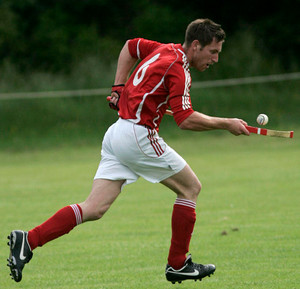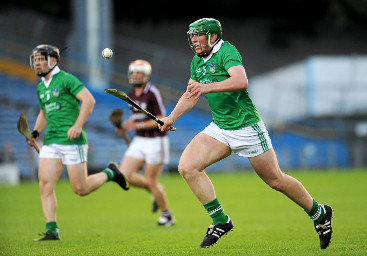| Irish Forums Message Discussion :: Celtic sports Shinty/Hurling International Ireland Scotland |
   | Irish Forums :: The Irish Message
Forums About Ireland and the Irish Community, For the Irish home and Abroad. Forums include- Irish Music, Irish History, The Irish Diaspora, Irish Culture, Irish Sports, Astrology, Mystic, Irish Ancestry, Genealogy, Irish Travel, Irish Reunited and Craic
|  
|
Celtic sports Shinty/Hurling International Ireland Scotland


|
|
|
| Irish
Author |
Celtic sports Shinty/Hurling International Ireland Scotland Sceala Irish Craic Forum Irish Message |
|
Paddy acting the goat
Sceala Philosopher
Location: Antrim
|
| Sceala Irish Craic Forum Discussion:
Celtic sports Shinty/Hurling International Ireland Scotland
|
|
|
Shinty/Hurling International series.
The Gaelic Celtic sports Shinty / Hurling International between Ireland and Scotland
The sports of the Gaels. Irish and Scots are the Gaelic people. The Gaels sports of Shinty and Hurling.
 
Latest results from The Gaelic Celtic sports Shinty/Hurling International between Ireland and Scotland
Goals from Brendan Maher and Joe Bergin earned Ireland a narrow win in the second Test of the Shinty/Hurling International series in Inverness.
The result means that Joe Dooley's side take the series on a seven-point aggregate, having beaten the Scots last week in Athy.
Taking advantage of a strong wind, Scotland burst into a nine-point lead, with Finlay Macrae scoring the goal.
Ireland responded with a goal from Offaly's Joe Bergin and Laois' Willie Hyland also landed a free to leave the half-time score 1-08 to 1-02.
Ireland had the better of the second half but required a fortuitous last-gasp goal to snatch the game from the hosts.
Tipperary's Brendan Maher sent a long-range free into the danger area but the Scottish keeper was badly at fault as the ball went over his head and into the back of the net.
It is the third year in a row that Ireland have won the series.
Ireland squad named for shinty Hurling internationals
Celtic sports Shinty/Hurling International between Ireland & Scotland
The Celtic Cross-Code sport of Shinty-Hurling is an unusual hybrid. It has no dedicated leagues or clubs but is played at international level, has a unique rule book, opposing sides use different equipment, and even gives the ladies version of the same game a different name? We took a trip to Dublin to find out more.
Irish squad of The Celtic sports Shinty/Hurling International between Ireland and Scotland
IRELAND SQUAD:
P Mullaney (Laois), A Graffin (Antrim), C Donnelly (Antrim), D Kennedy (Kildare), T Murnane (Kerry), B Maher (Tipperary), K Divilly (Kildare), E Price (Westmeath), M Rice (Kilkenny, capt), W Hyland (Laois), B Murtagh (Westmeath), E Nolan (Carlow), J Bergin (Offaly), E Kelly (Tipperary), A O'Brien (Wicklow), D Maguire (Tyrone), J Doran (Kildare), S Morley.
IRELAND UNDER-21 SQUAD:
E Reilly (Laois), M Armstrong (Antrim), J Coyne (Roscommon), D English (Carlow), J Gilligan (Westmeath), C Grogan (Tyrone), D Hannon (Limerick), J Leahy (Kerry), A McGrath (Westmeath), B Murphy (Kerry), K Murphy (Westmeath), S Nolan (Kerry), D O'Connell (Kerry, capt), B O'Meara (Westmeath), E O'Neill (Kildare), M Purcell (Kildare), M Quinn (Leitrim), O Walsh (Kilkenny).
The Celtic sports Shinty/Hurling International between Ireland and Scotland
Celtic sports Shinty/Hurling International Ireland Scotland
Composite rules shinty-hurling
Composite rules shinty-hurling (Irish: Rialacha chomhréiteach sinteag-iomáint), sometimes known simply as shinty-hurling) is a hybrid sport which was developed to facilitate international matches between shinty players and hurling players.
Shinty-hurling is one of few team sports in the world without any dedicated clubs or leagues. It is currently played by both men's and women's teams only in tournaments or once-off internationals. The women's form of the game is called shinty/camogie.
Rules
The rules of the composite sport are designed to allow for neither side to gain an advantage, eliminating or imposing certain restrictions. The goals are those used in hurling, with 3 points for a goal and 1 point for a shot over the bar. A stationary ball taken straight from the ground scores 2 points.
Players may not catch the ball unless they are the goalkeeper (or a defender on the line for a penalty) and this must be released within three steps. Players may not kick the ball, but can drag the ball with their foot.
Although there is a statutory size for the ball to be used in the games, there is often a custom of using a sliotar in one half and a shinty ball in the other.
Each half lasts 35 minutes.
History of The Celtic sports Shinty/Hurling International between Ireland and Scotland
The first ever games played were challenge matches between London Scottish and London GAA in 1896 and Glasgow Cowal and Dublin Celtic in 1897 and 1898, with the first game played at Celtic Park. However, there was then a hiatus until Scottish representative teams and Irish sides took place in the 1920s. Following intermittent international games between Scotland and an all-Ireland team before the Second World War, controversy arose as the British Government put pressure upon the Camanachd Association to cease from cooperating with the Gaelic Athletic Association, disapproving of their perceived anti-British viewpoint.
However, universities in both countries kept the link going after the war and this led to a resumption of international fixtures between the two codes in the 1970s.
After a long run of Irish successes, Scotland won four fixtures in a row from 2005 until Ireland reclaimed the title in 2009. Scotland's successes have been marred by a lack of interest from an Irish perspective. Unlike the international rules football tests between Australia and Ireland, few players from the top flight counties participate in the event, with often players from what would be deemed as weaker counties forming the Irish team.
2007 also saw the use of compromise rules as a way of developing the Gaelic languages in Ireland and Scotland by the Columba Initiative. A team called Alba, made up of Scottish Gaelic speakers, played Micheál Breathnach GAA, from Inverin, Galway. The project was repeated in 2008.[4] The Gaelic speakers international was played for a 3rd time in 2010 in Portree in the Isle of Skye on 13 February 2010.
There are also Scottish/Irish women's and under-21s sides which have competed against one another.
In 2009, the first full shinty/hurling match in the United States took place between Skye Camanachd and San Francisco GAA.
In 2010, the fixture was played at Croke Park before the International Rules game and then a return leg was played at the Bught Park two weeks later.
The Gaelic Celtic sports Shinty/Hurling International between Ireland and Scotland

Shinty (Scottish Gaelic: camanachd, iomain) is a team game played with sticks and a ball. Shinty is now played mainly in the Scottish Highlands, and amongst Highland migrants to the big cities of Scotland, but it was formerly more widespread, being once competitively played on a widespread basis in England and other areas in the world where Scottish Highlanders migrated.
Shinty is older than the recorded history of Scotland. Shinty predates Christianity, having come to Scotland with the Gaels from Ireland. Hurling, a similar game to Shinty, is derived from the historic game common to both peoples which has been a distinct Irish pastime for at least 2,000 years.
Shinty/Hurling appears prominently in the legend of Cúchulainn, the Celtic mythology hero. A similar game was played on the Isle of Man known as cammag, a name cognate with camanachd. The old form of hurling played in the northern half of Ireland, called "Commons", resembled shinty more closely than the standardised form of hurling of today. Like shinty it was commonly known as camánacht and was traditionally played in winter.

Hurling (Irish: Iománaíocht/Iomáint) is an outdoor team game of ancient Gaelic origin, administered by the Gaelic Athletic Association, and played with sticks called hurleys and a ball called a sliotar. Hurling is the national game of Ireland. The Irish game of Hurling has prehistoric origins, has been played for at least 3,000 years, and is thought to be the world's fastest field team game in terms of game play. One of Ireland's native Gaelic games, it shares a number of features with Gaelic football, such as the field and goals, number of players, and much terminology. There is a similar game for women called camogie (camógaíocht). It shares a common Gaelic root with the sport of shinty (camanachd) which is played predominantly in Scotland.
Hurling is older than the recorded history of Ireland. Predating Christianity, having come to Ireland with the Gaelic Celtic people. It has been a distinct Irish pastime for at least 2000 years. The earliest written references to the sport in Brehon law date from the fifth century. In the book by Seamus King "A History of Hurling" there is a reference from Irish verbal history of hurling as far back as the 1200 B.C. Hurling is related to the games of shinty that is played primarily in Scotland, cammag on the Isle of Man and bandy that was played formerly in England and Wales. The tale of the Táin Bó Cuailgne (drawing on earlier legends) describes the hero Cúchulainn playing hurling at Emain Macha. Similar tales are told about Fionn Mac Cumhail and the Fianna, his legendary warrior band. Recorded references to hurling appear in many places such as the 13th century Statutes of Kilkenny and a 15th century grave slab survives in Inishowen, County Donegal.
Hurling was said to be played in ancient times by teams representing neighbouring villages. Villages would play games involving hundreds of players, which would last several hours or even days.
The Eighteenth Century is frequently referred to as "The Golden Age of Hurling." This was when members of the Anglo-Irish landed gentry kept teams of players on their estates and challenged each other's teams to matches for the amusement of their tenants.
One of the first modern attempts to standardise the game with a formal, written set of rules came with the foundation of the Irish Hurling Union at Trinity College Dublin in 1879. It aimed "to draw up a code of rules for all clubs in the union and to foster that manly and noble game of hurling in this, its native country".
The founding of the Gaelic Athletic Association (GAA) in 1884 turned around a trend of terminal decline by organising the game around a common set of written rules. The 20th century saw greater organisation in hurling and Gaelic football. The all-Ireland hurling championship came into existence along with the provincial championships. Cork, Kilkenny and Tipperary dominated hurling in the 20th century with each of these counties winning more than 20 All-Ireland titles each. WexfordWexford GAA, Waterford, Clare, LimerickLimerick GAA, Offaly, Dublin, and Galway were also strong hurling counties during the 20th century.
Hurling Scoring since 1910
As hurling entered the new millennium, it has remained Ireland's second most popular sport. An extended qualifier system resulted in a longer All-Ireland Senior Hurling Championship, but Cork, Tipperary and Kilkenny have come to dominate the championship and some argue that the All-Ireland has become less competitive. Pay-for-play remains controversial and the Gaelic Players Association continues to grow in strength. The inauguration of the Christy Ring Cup and Nicky Rackard Cup gave new championships and an opportunity to play in Croke Park to the weaker county teams. Further dissemination of the championship structure was completed in 2009 with the addition of the Lory Meagher Cup to make it a 4 tier championship
Celtic sports Shinty/Hurling International Ireland Scotland
Ulster Hurling. Hurling event at Stormont.
What is Hurling. Irish Sport of Hurling
Hurling in us capital
Gaels celts from Ireland
Beltane Celtic Gaelic traditions Beltaine festivals Ireland
The Scots Irish
|
|
|
|
|
|
|
|
|
Irish Community Site MapIrish Message Site Map
Irish Forums Message Discussion :: Celtic sports Shinty/Hurling International Ireland Scotland � Sceala.com Irish Forums (Ireland) :: Designed In Ireland By Sceala The Irish
Message :: Irish Web Ireland :: Celtic sports Shinty/Hurling International Ireland Scotland From Sceala The Irish Message :: Irish
Forums
|











